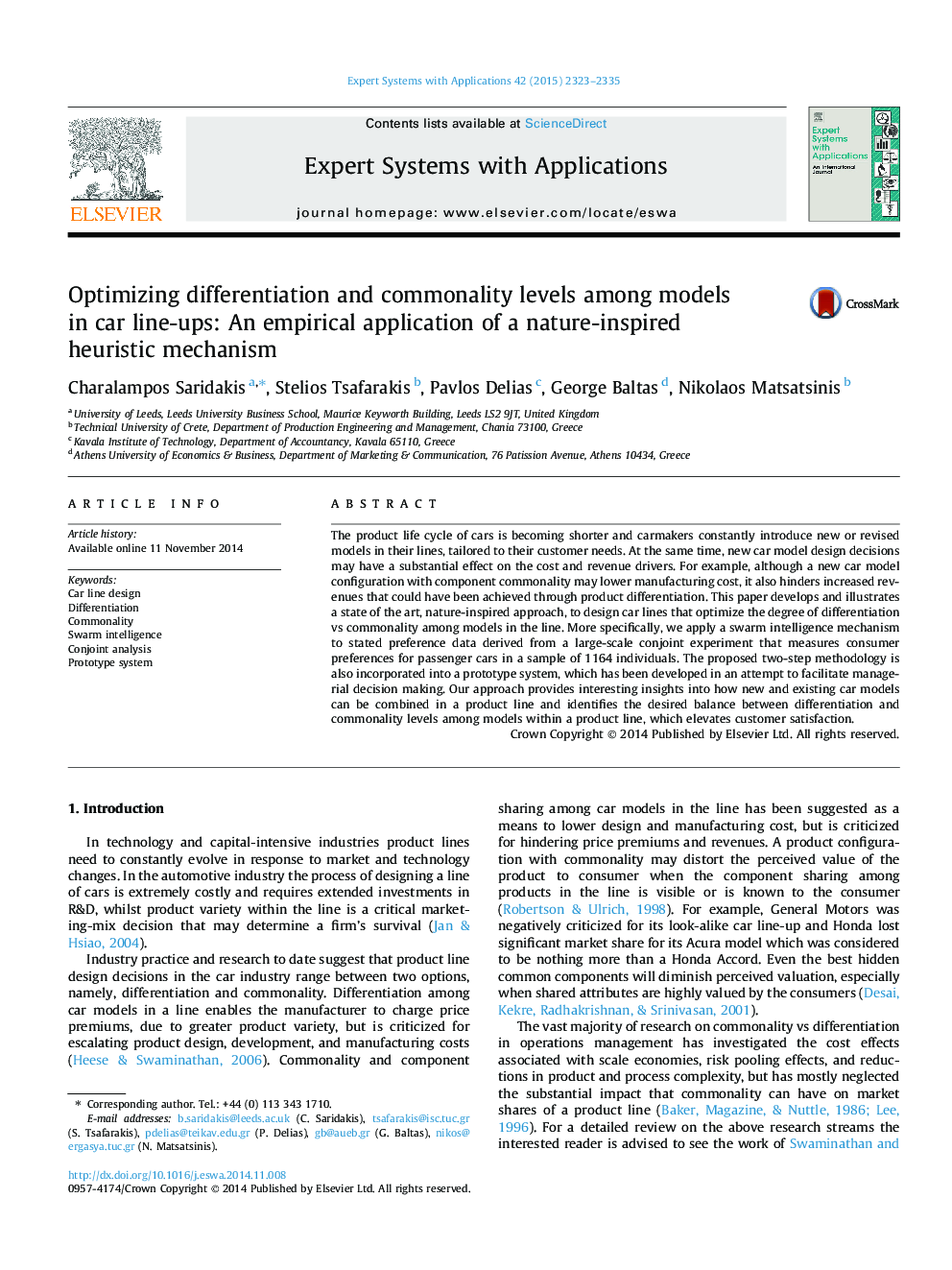| Article ID | Journal | Published Year | Pages | File Type |
|---|---|---|---|---|
| 382832 | Expert Systems with Applications | 2015 | 13 Pages |
•We implement a swarm intelligence mechanism to design optimal car lines.•We aim to optimize differentiation and commonality levels among models in the line.•Our mechanism utilizes stated preference data derived from a conjoint experiment.•A prototype system is also developed to facilitate managerial decision making.•Insights are provided into how new and existing car models must be combined.
The product life cycle of cars is becoming shorter and carmakers constantly introduce new or revised models in their lines, tailored to their customer needs. At the same time, new car model design decisions may have a substantial effect on the cost and revenue drivers. For example, although a new car model configuration with component commonality may lower manufacturing cost, it also hinders increased revenues that could have been achieved through product differentiation. This paper develops and illustrates a state of the art, nature-inspired approach, to design car lines that optimize the degree of differentiation vs commonality among models in the line. More specifically, we apply a swarm intelligence mechanism to stated preference data derived from a large-scale conjoint experiment that measures consumer preferences for passenger cars in a sample of 1164 individuals. The proposed two-step methodology is also incorporated into a prototype system, which has been developed in an attempt to facilitate managerial decision making. Our approach provides interesting insights into how new and existing car models can be combined in a product line and identifies the desired balance between differentiation and commonality levels among models within a product line, which elevates customer satisfaction.
